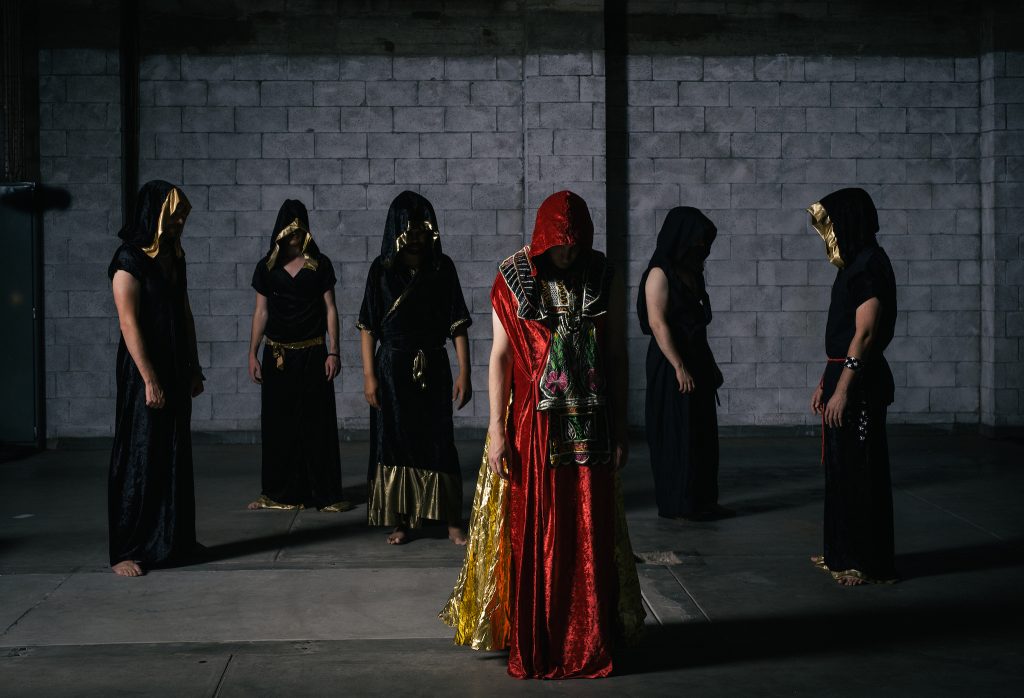Combining established Australian names and up-and-comers into their programme, there’s plenty going on at this year’s Stonnington Jazz Festival to enjoy for both jazz enthusiasts and interested newcomers alike.
Appearing as part of the Mad Jazz 3: Beyond Thunderdome event, The Shaolin Afronauts will perform against a backdrop of the iconic Australian film Mad Max: Beyond Thunderdome, the audience experiencing the film like never before. George Miller’s astounding imagination of a post-apocalyptic world will be combined with the wild jazz fusions of the Adelaide-based futurist afro-soul outfit, inclusive of a reworking of the classic Tina Turner song ‘We Don’t Need Another Hero (Thunderdome)’. “We’ve done performances of one of the Mad Max films over the last two years at Stonnington,” says the band’s guitarist Dylan Marshall. “We’ll play live with the movie running behind us on a big screen.”
You will, of course, have heard of instances of classical music meshed with film, but with jazz, you can expect a more bright and upbeat show. “What we play is afrobeat,” Marshall says. “There’s some free jazz stuff in there as well and can go from really happy music all the way through the very free and everything in between. We’ve got good scope to shape it into what the movie needs.”
This is their third appearance at Stonnington Jazz Festival performing to a film in the original Mad Max trilogy. “This particular gig is very different, mainly because of the setting and the movie playing,” Marshall says. “We’re interacting with what’s happening with the movie – there’ll be lots of times where it’s quite open-ended, where we’ve got a solo or a group improvisation. It’s less about us and more about what we’re contributing to the movie, so it’s a different angle
For people who don’t know the intricacies of jazz, having Mad Max: Beyond Thunderdome showing behind The Shaolin Afronauts provides a foundation of understanding, and for the band, it almost serves as a chord chart. “In some ways it is,” says Marshall. “The good aspect about this particular show is that it gives, especially people who aren’t used to what happens with jazz, is it gives them a doorway in.
“We’re interacting with the movie, everyone’s watching the movie and you can see that interaction at work there. You’re seeing the movie, you’re hearing someone react to it, and it’s a good connection, a bridge for someone who hasn’t heard much jazz. What we’re doing makes it easy for someone to understand what’s going on.”
What’s intriguing about a group like The Shaolin Afronauts and their having been involved with Stonnington Festival on several occasions, is not just how they’ve seen the festival grow, but also how they’ve grown as a group and what they’ve taken away from their appearances and incorporated it into their work. “This wasn’t our idea, this was brought to us by Chelsea [Wilson, artistic director]. It was a strange idea but once we started doing it, it somehow made sense.
“It’s funny, because having to put our music along with a movie almost makes you look at your own work from a different point of view.
“A lot of music that we’ve written is what we’re using in the film, we haven’t had to think about what emotions we’re trying to get across in such a deep way,” Marshall says. “If you had to take a recording and put it against something that’s happening in a story, you have to consider all those emotional elements of what it is that you’re doing. Until you’re confronted with that, you’re not really thinking about it in the way you probably would, or at least, the way I certainly do now when I’m writing something.
“As I’ve gone along these last few years, I think that’s become part of our approach to making music, one that we put more emphasis on,” Marshall says.” You feel like there’s another parameter you can work with you probably wouldn’t have before, just by having to consider your own music to a story.”

